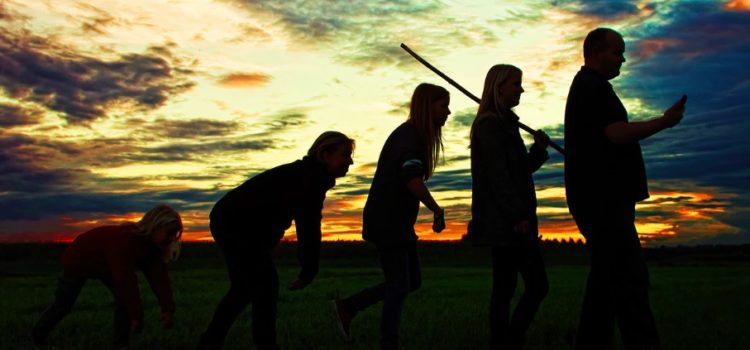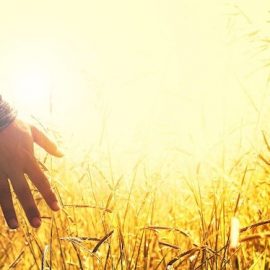
What is evolutionary mismatch? What are some examples of traits that used to be advantageous, but became the opposite?
Evolutionary mismatch is a phenomenon where traits that used to aid survival in the past work to our disadvantage in the present. For example, our brains evolved to support our survival as hunter-gatherers—not our survival in modern life.
Here’s why humans are biologically not wired for the demands modern life presents.
The Past: We Evolved to Survive a Hunter-Gatherer Lifestyle
According to Bevelin, humans have developed traits that support a hunter-gatherer lifestyle. Humans were hunter-gatherers for close to 99% of our evolutionary history. Our hunter-gatherer ancestors lived in groups, found food through foraging and hunting, fended off predators, and competed to reproduce.
(Shortform note: In his book, Bevelin discusses the hunter-gatherer lifestyle as if it’s a relic of the past—but modern hunter-gatherer societies exist in many regions around the world. Their lifestyles differ somewhat from those of the ancestral hunter-gatherers Bevelin discusses in his book. For instance, some modern hunter-gatherers supplement their diets with cultivated food, such as the Pumé people of South America, who grow cassava. Additionally, some hunter-gatherers have incorporated technology into their daily lives: For example, the Inuit living in the Arctic use snowmobiles to travel among their hunting grounds.)
Furthermore, Bevelin emphasizes that our hunter-gatherer brains evolved to avoid pain and find pleasure—and all human brains today still have this wiring. According to Charles Darwin’s theory of natural selection, hunter-gatherers with biological traits that allowed them to avoid pain (such as attacks from predators) and find pleasure (such as food and sex) were more likely to survive and pass these traits on to their children.
(Shortform note: Recent neuroscience research supports Bevelin’s claims and Darwin’s theory that we’re driven to seek pleasure and avoid pain. One study found that two specific kinds of neurons play a role in these two behaviors. The “GABAergic” neurons associated with pleasure-seeking motivate you to continue pursuing experiences that have given you pleasure in the past. The “glutamatergic” neurons associated with pain avoidance make it more likely you’ll avoid experiences that have caused you pain.)
The Present: Modern Life Demands Different Forms of Survival
According to Bevelin, we make major errors because the situations and threats we face today are vastly different from those we evolved to survive. In other words, there’s an evolutionary mismatch between how our brains are wired to problem-solve and the types of problems we face today. Hunter-gatherers mainly faced threats to their physical safety, such as hungry predators and extreme cold. By contrast, today, we primarily face threats to our social and psychological safety, such as the threat of losing a job.
| Exploring the Demands of Modern Life Although Bevelin expresses that our hunter-gatherer brains are ill-suited for the demands of modern life, he doesn’t explain in detail what these demands are and why they lead us to make mistakes. Let’s explore several psychologists’ ideas on which features of modern life lead us astray. First, some psychologists theorize that we make mistakes because modern life presents us with complex environments that can lead us to learn the wrong lessons. A complex environment gives you delayed, inconsistent, or hard-to-interpret feedback on the effects of your actions, which prevents you from learning. For instance, our workplaces can be complex environments, especially if our bosses don’t provide us with frequent, clear feedback. By contrast, our hunter-gatherer ancestors mostly lived in simple environments that gave them rapid, clear feedback on the effects of their actions. For instance, they learned which wild creatures were safe versus dangerous to be around. Our brains evolved to process information and make decisions in simple environments—not complex ones. What features of modern life contribute to its complexity, increasing the chances we’ll make errors? In The Paradox of Choice, psychologist Barry Schwartz claims that today’s market democracies offer us an overabundance of choices, which makes us feel overwhelmed and stressed. As a result, we easily make poor choices because we don’t have the time or mental energy to thoroughly consider our many options. |






